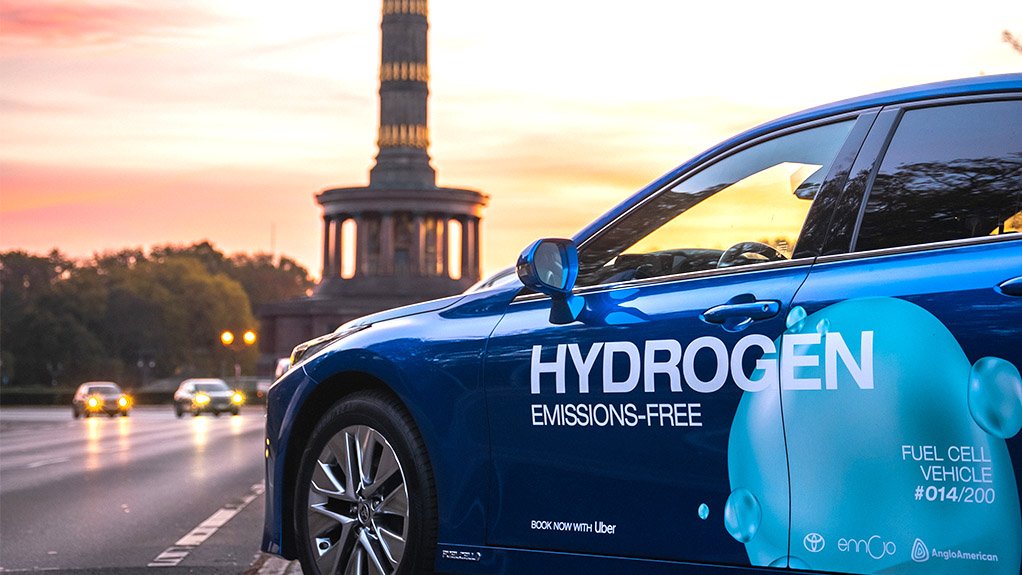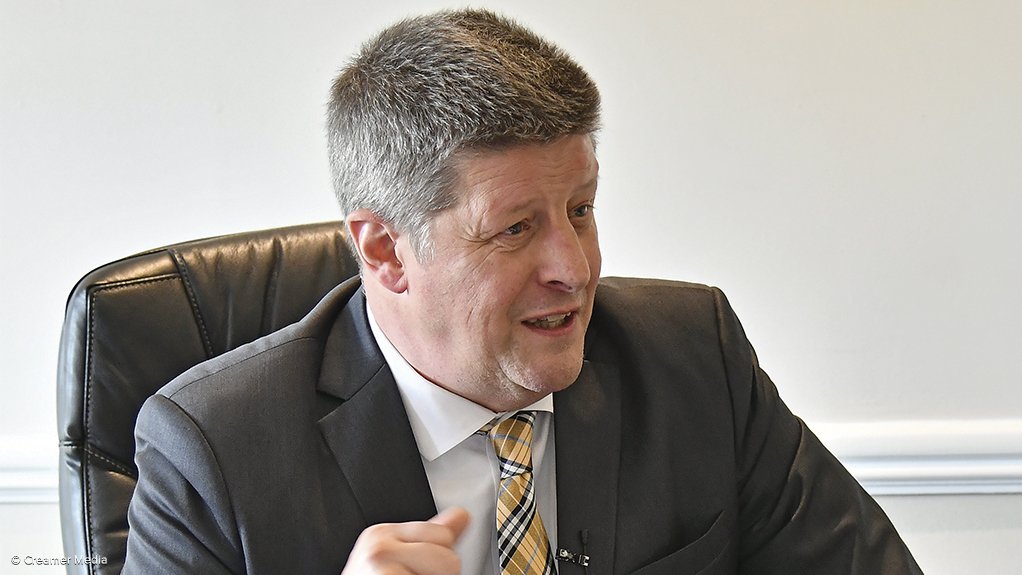JOHANNESBURG (miningweekly.com) – Platinum-enabled hydrogen fuel cell technology is taking the pollution out of the city of Berlin, as it may in time also do in South Africa given the completion of a positive local feasibility study.
By hailing a fuel cell electric vehicle (FCEV), more than 100 000 taxi customers in the German capital have chosen to desist from adding to the world’s unhealthy transport fume problem.
First launched at the end of 2022, H2 Moves Berlin is Germany’s largest FCEV fleet, and forms part of Anglo American’s strategy to help accelerate zero emission transport through the deployment of platinum-enabled hydrogen FCEVs.
When used in a fuel cell, platinum serves as the catalyst to generate electricity through a chemical reaction between hydrogen and oxygen. This is then used to power the motor of an FCEV, which can be refuelled in five minutes and drive 650 km without needing to refuel – and it’s all squeaky clean.
This has been brought about by Anglo, Toyota Germany and taxi operator SafeDriver Group-ENNOO.
H2 Moves Berlin, which is leveraging Berlin’s existing hydrogen refuelling infrastructure and the Uber ride-hailing platform, currently has 115 Toyota Mirai vehicles in use, with the fleet looking to expand to as many as 200 vehicles in the coming months.
“The last few months have shown that our passengers are very enthusiastic about the sustainability and comfort that FCEVs can provide,” SafeDriver Group MD Thomas Mohnke stated in a release to Mining Weekly.
“Our drivers meanwhile appreciate the driving performance of an electric car with the range and refuelling speed of a combustion engine. As a fleet operator looking to minimise cars’ downtime while delivering zero emission mobility, FCEVs simply make sense,” Mohnke highlighted.
The Mirai’s long range and short refuelling times have proven popular with both drivers and users, with the FCEV fleet providing significantly more rides per vehicle than other zero emission ride-sharing options. Beyond the Uber platform, the project has also been supporting Berlin’s public events calendar by providing shuttle services at high-profile events such as the Berlinale, Greentech Festival and the Special Olympics.
"H2 Moves Berlin proves that alternative drivetrains and everyday use go hand in hand. In more than 100 000 trips across the capital, the Mirai taxis have easily covered more than a million kilometres. This milestone underlines the reliability of hydrogen-powered vehicles," Toyota Germany president and MD André Schmidt stated.
Initiatives like H2 Moves Berlin help the uptake of FCEVs both by aligning end-user demand locations with the supply of vehicles and infrastructure access, but also by providing passengers with the opportunity to directly experience the benefits and convenience of hydrogen-powered mobility. In addition to its existing activities in Berlin, Anglo is identifying future light-duty FCEV deployment opportunities in Europe, China and the US.
Anglo market development executive head Benny Oeyen described hydrogen fuel cells as critical technology for zero emission electric vehicles. “We believe that FCEVs are particularly well suited to vehicle fleets, such as taxis and buses, as well as to heavy duty trucks that require the range and rapid refuelling times without the weight of batteries. At the same time, we are also seeing that FCEVs offer relief to increasingly pressured battery minerals supply chains and hence can contribute to the stability and sustainability of electric vehicle supply.
“As a leading producer of the platinum needed for fuel cell technology, we have been an early supporter of the potential for a hydrogen economy and will continue to actively support the emerging ecosystem of hydrogen-powered transport in Germany, and beyond,” Oeyen added.
EMAIL THIS ARTICLE SAVE THIS ARTICLE ARTICLE ENQUIRY
To subscribe email subscriptions@creamermedia.co.za or click here
To advertise email advertising@creamermedia.co.za or click here













